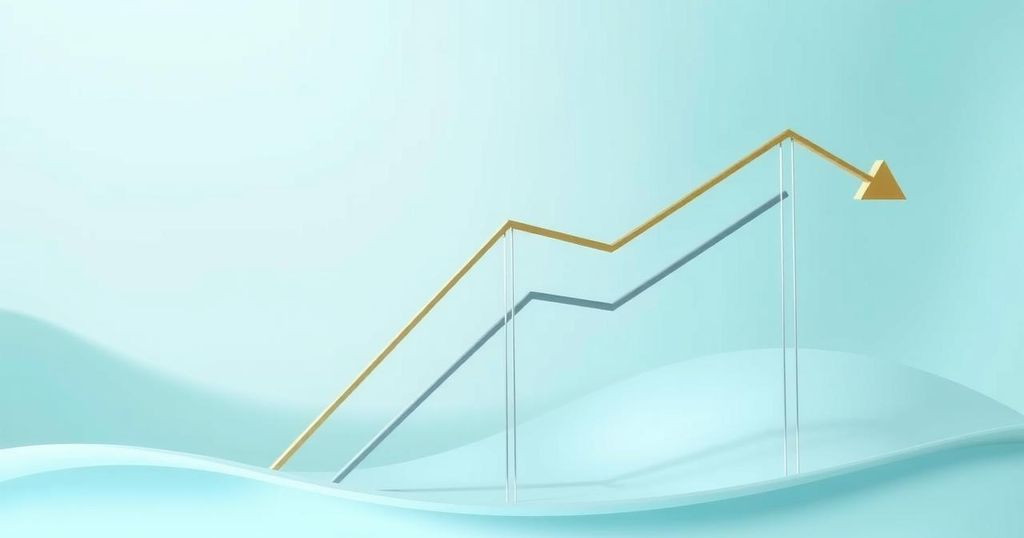Nigeria’s Inflation Rate Decrease to 23.18% Amid Economic Adjustments
Nigeria’s headline inflation rate decreased to 23.18% year-on-year in February 2025. The Consumer Price Index was rebased, reflecting changes in consumption patterns, leading to a notable decline in food inflation. Urban and rural inflation rates also showed significant reductions, contributing to an overall downward trend in inflation rates in the country.
In February 2025, Nigeria’s headline inflation rate decreased to 23.18 percent year-on-year, according to the Nigerian Bureau of Statistics (NBS). This decline follows the rebasing of the Consumer Price Index (CPI) which was updated to reflect contemporary consumption patterns. The previous inflation rate was notably corrected from 34.80 percent in December to 24.48 percent in January, marking a significant decrease after more than a decade.
Food inflation also saw a reduction, registering 23.51 percent year-on-year in February 2025, which is a considerable drop compared to 37.92 percent in February 2024. The NBS attributed this decline in food inflation largely to the recalibrated base year. A month-on-month assessment indicated a food inflation rate of 1.67 percent, whereas the overall headline inflation stood at 2.04 percent for the same period in 2025.
Examining urban inflation, February 2025 recorded a rate of 25.15 percent year-on-year, reflecting an 8.51 percent point decrease from the previous year’s 33.66 percent. The month-on-month urban inflation rate was 2.40 percent, with a twelve-month average inflation rate reaching 32.22 percent, which is a rise of 4.28 percent points since February 2024.
Conversely, rural inflation for February 2025 was recorded at 19.89 percent year-on-year, showing a decrease of 10.09 percent compared to 29.99 percent in February 2024. The month-on-month rural inflation rate was indexed at 1.16 percent. The twelve-month average for rural inflation was noted at 27.94 percent, an increase of 3.33 percent points from 24.61 percent in February 2024.
Inflation surged to 28-year highs last year, driven by President Bola Tinubu’s policy initiatives to terminate expensive subsidies and devalue the naira after his inauguration in 2023. The NBS cautioned that CPI analysis varies by consumption patterns among different states, which complicates interstate comparisons in consumption baskets.
In conclusion, Nigeria has witnessed a notable decline in inflation rates, with the headline figure decreasing to 23.18 percent in February 2025. This reduction has been attributed to adjustments in the Consumer Price Index, as well as significant declines in both urban and rural inflation. While food inflation rates too have significantly dropped, further analysis of price movements remains essential due to varying consumption patterns across states.
Original Source: allafrica.com




Post Comment